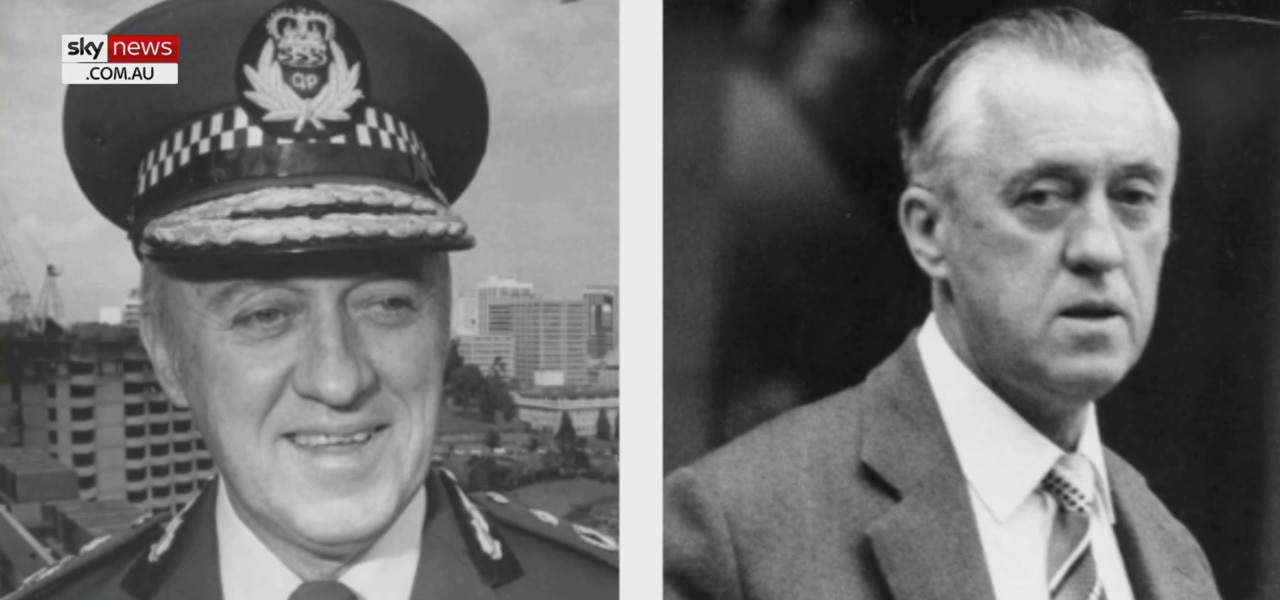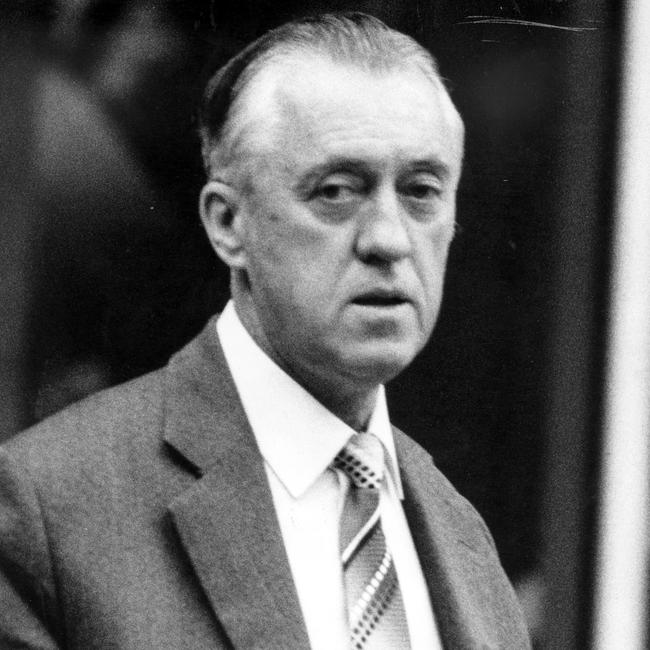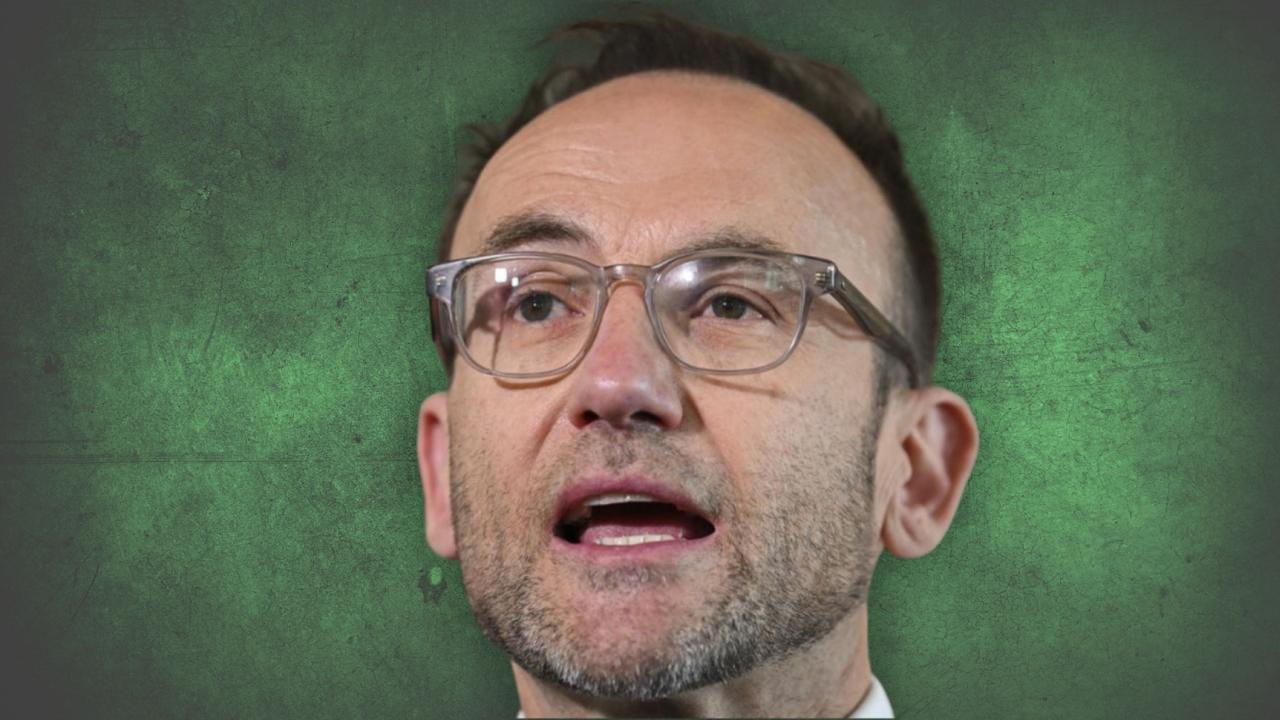Editorial: Terry Lewis death not the end of corruption vigilance
The death of Terry Lewis closes a dark chapter in Queensland history, but the current administration is dragging its feet on integrity, writes the editor.

Opinion
Don't miss out on the headlines from Opinion. Followed categories will be added to My News.
The death last week of disgraced former police commissioner Terry Lewis at the age of 95 marks the end of a dark chapter in Queensland’s recent history.
It should not close the book on fighting corruption in Queensland’s public sector; that is a task requiring eternal vigilance.
Lewis was one of the last links still here to the era of rampant police corruption uncovered by Tony Fitzgerald in his landmark inquiry in the late 1980s. His death is an important reminder of the fact the extent of public sector corruption exposed was in many respects the result of an unwillingness of the Bjelke-Petersen government over many years previously to even acknowledge its possible existence.
It was only after the courage and commitment of this newspaper and its reporter Phil Dickie in exposing police involvement in illegal prostitution and gambling that the government finally commissioned the Fitzgerald inquiry in 1987 – a decision made by acting premier Bill Gunn while Mr Bjelke-Petersen was overseas. That decision was made in the immediate aftermath of the ABC’s landmark Four Corners report “The Moonlight State” by journalist Chris Masters, which was based on Dickie’s exclusives.
The inquiry’s report was tabled in Parliament two years later and led to Lewis being sentenced to 14 years imprisonment on multiple counts of perjury, corruption and forgery – the first and still only police commissioner to be sent to jail.
Since then, governments have pledged their commitment to fighting corruption – including, of course, current Premier Annastacia Palaszczuk, who declared on the 30th anniversary of the Fitzgerald report in 2019 that it is “our job to continue what he started … and never forget”.
There are so many more systems in place to oversee public sector behaviour now – not least of which is the Crime and Corruption Commission. But having oversight and accountability mechanisms is one thing. Eternal vigilance also requires a commitment to actively ensuring they remain fit for purpose and are actually working.
Which is why it is strange that Ms Palaszczuk is taking such a leisurely approach to implementing the recommendations from Professor Peter Coaldrake’s “Let the Sunshine In” report into public sector culture and accountability that he released almost a year ago.
On the day of the report’s release last June, Ms Palaszczuk echoed the famous words of then-premier Mike Ahern with the Fitzgerald report and pledged to enact the Coaldrake recommendations “lock, stock and barrel”.
But to date, barely a third have been acted on, and most have been the easy-to-fix low-hanging fruit.
Anything potentially contentious – such as the recommendation to release Cabinet papers within 30 days, or increasing the amount of information captured in ministerial diary disclosures – appears to have been left to wither on the vine.
This is both disappointing and potentially dangerous. Inevitably, the longer a government stays in office, the more complacent it becomes – and despite the very best of intentions, the ground becomes more fertile for wrongdoing.
The Palaszczuk administration is now more than eight years old and shows all the signs of a government that is not as energetic as it once was in doing the hard work to pursue the best way forward.
Rather than asking the questions that might proactively identify problems early, Ms Palaszczuk’s pattern in recent times has been to react to crises as they emerge.
Terry Lewis always claimed he was innocent. But now that he’s dead, former Courier-Mail journalist Matthew Condon has been able to reveal without fear of being sued that Lewis did in fact once admit his guilt, privately, at a Condon family barbecue.
“We were all on the take,” Lewis told Condon’s wife Kate during a kitchen conversation – a candid confession Lewis never repeated.
Today’s Queensland is of course nothing like the dark pre-Fitzgerald days. There is no suggestion of institutionalised corruption. But proactive vigilance is the only way to ensure that remains the case.

TOURISM NEEDS A LIFELINE
A detailed and clear path back is needed for the tourism industry it took a devastating hit with the outbreak of Covid-19 in 2020.
While tourist operators as a whole are resilient and have battled their way through floods, fire, cyclones and economic downturns, an untapped market may be the way to give the industry the shot in the arm it needs.
As revealed today, the latest report by Queensland’s Auditor-General details the 20 per cent dive in the tourism industry’s economic contribution since March 2020.
The 44-page report also notes the “lack of clear direction” by the state government when it comes to eco-tourism.
The report found that, in the past decade, the Department of Environment and Science had approved just three eco-tourism facilities in national parks.
It’s a fine line to walk – opening up our natural wonders to development while maintaining their pristine nature. If the government can walk that line, eco-tourism could be the major boon the industry needs.
Responsibility for election comment is taken by Chris Jones, corner of Mayne Rd & Campbell St, Bowen Hills, Qld 4006. Printed and published by NEWSQUEENSLAND (ACN 009 661 778). Contact details here




